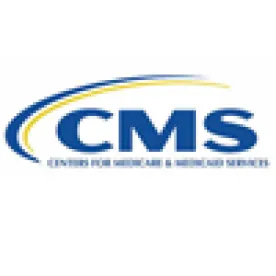On July 21, 2017, the Center for Medicare & Medicaid Services (CMS) published a proposed rule that addresses Part B Medicare payments and policies for calendar year (CY) 2018.
The major proposed rule is one of several Medicare payment rules for CY 2018 reflecting a broader strategy to relieve regulatory burdens for providers; support the patient-doctor relationship in healthcare; and promote transparency, flexibility and innovation in the delivery of care. The Physician Fee Schedule (PFS) is updated annually to include changes to payment policies, payment rates and quality provisions for services furnished to Medicare beneficiaries.
The proposed rule contains several important changes regarding physician payment, reimbursement for hospital outpatient departments, telehealth, and others. Some notable provisions are as follows:
Overall Payment Update and Misvalued Code Target. The overall update to PFS payments under the proposed rule for CY 2018 is an increase of 0.31% over current rates. The update includes the 0.50% update established under the Medicare Access and CHIP Reauthorization Act (MACRA) of 2015, reduced by 0.19%, due to the misvalued code target recapture amount, required under the Achieving a Better Life Experience (ABLE) Act of 2014.
After applying these adjustments and the budget neutrality adjustment to account for changes in RVUs, all required by law, the proposed 2018 PFS conversion factor is US$35.99, an increase to the 2017 PFS conversion factor of US$35.89.
Reduce PFS Rates for Off-Campus Departments from 50% to 25%. The proposed rule would change the PFS payment rates for non-excepted items and services from 50% of the Hospital Outpatient Prospective Payment System (OPPS) payment rate to 25% of the OPPS payment rate. For off-campus sites that were not mid-build by November 2, 2015, CMS pays half of hospital rates, and CMS proposes to pay only 25% of hospital rates next year.
Proposed Modifications to the 2018 PQRS Payment Adjustment and Value-Based Payment Modifier. For the 2018 payment year, CMS is proposing to change the current Physician Quality Reporting System (PQRS) program policy that requires reporting of nine measures across three National Quality Strategy domains to only require reporting of six measures for the PQRS. This is significant for many practices that have previously struggled to reach the higher threshold.
In addition, CMS is proposing to ease downward adjustments in the value-based payment modifier. As written, the proposed rule reduces the automatic downward payment adjustment for not meeting minimum quality reporting requirements from -4.0% to -2.0% for groups of 10 or more clinicians; and from -2.0% to -1.0% for physician and non-physician solo practitioners and groups of two to nine clinicians. In addition, the proposed rule would hold harmless all physician groups and solo practitioners who met minimum quality reporting requirements from downward payment adjustments for performance under quality-tiering for the last year of the program.
New Codes for Medicare Telehealth Services. For CY 2018, CMS is proposing to add several codes to the list of telehealth services. Additionally, CMS is proposing to eliminate the required reporting of the telehealth modifier for professional claims.
Under the proposed rule, CMS would add the following codes to the list of telehealth services:
-
HCPCS code G0296: Visit to determine low dose computed tomography eligibility;
-
CPT codes 96160 and 96161: Health risk assessment;
-
CPT codes 90839 and 90840: Psychotherapy for crisis;
-
HCPCS code G0506: Care planning for chronic care management; and
-
CPT code 90785: Interactive complexity.
Adopting Certain Codes for Care Management Services. CMS is proposing to adopt CPT codes for CY 2018 for reporting several care management services currently reported using Medicare G-codes. Also, CMS sought public comment on ways it might further reduce burden on reporting practitioners for chronic care management and similar services.
New Care Coordination Services and Payment for Rural Health Clinics (RHCs) and Federally Qualified Health Centers (FQHCs). CMS is proposing for RHCs and FQHCs to receive payment for regular and complex chronic care management services, general behavioral health integration services and psychiatric collaborative care model services using two new billing codes created exclusively for RHC and FQHC payment. This payment would be in addition to the payment for an RHC or FQHC visit.
Modification to Medicare Shared Savings Program Rules. CMS is proposing several modifications to the rules for accountable care organizations (ACOs) participating in the Medicare Shared Savings Program. The proposed rules include the following:
-
The addition of three new chronic care management codes and behavioral health integration codes to the definition of primary care services used in the ACO assignment methodology;
-
Reduction of burden for stakeholders submitting an initial Shared Savings program application and the application for use of the skilled nursing facility 3-Day Rule Waiver; and
-
Revisions to the assignment methodology to reflect the requirement under the 21st Century Cures Act that, beginning on or after January 1, 2019, HHS will determine an appropriate method to assign Medicare FFS beneficiaries to an ACO based on their utilization of services furnished by rural health clinics or federally qualified health centers.





 />i
/>i

